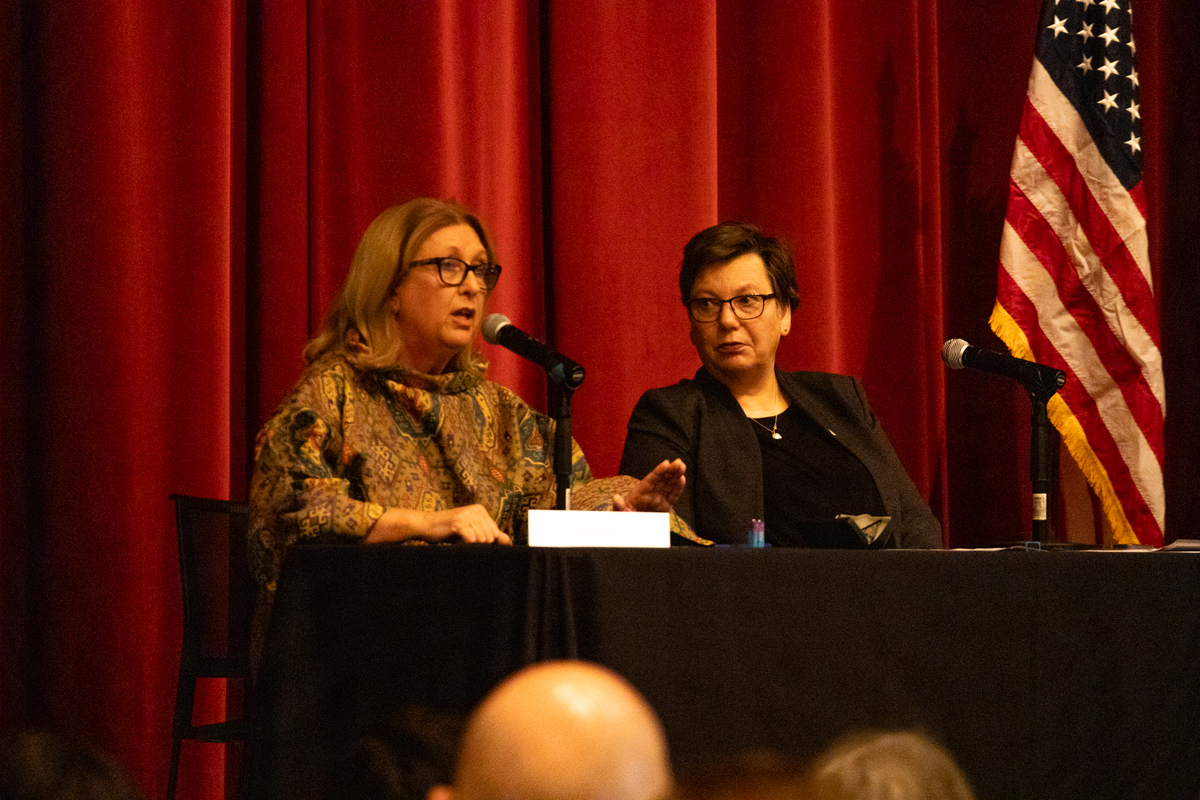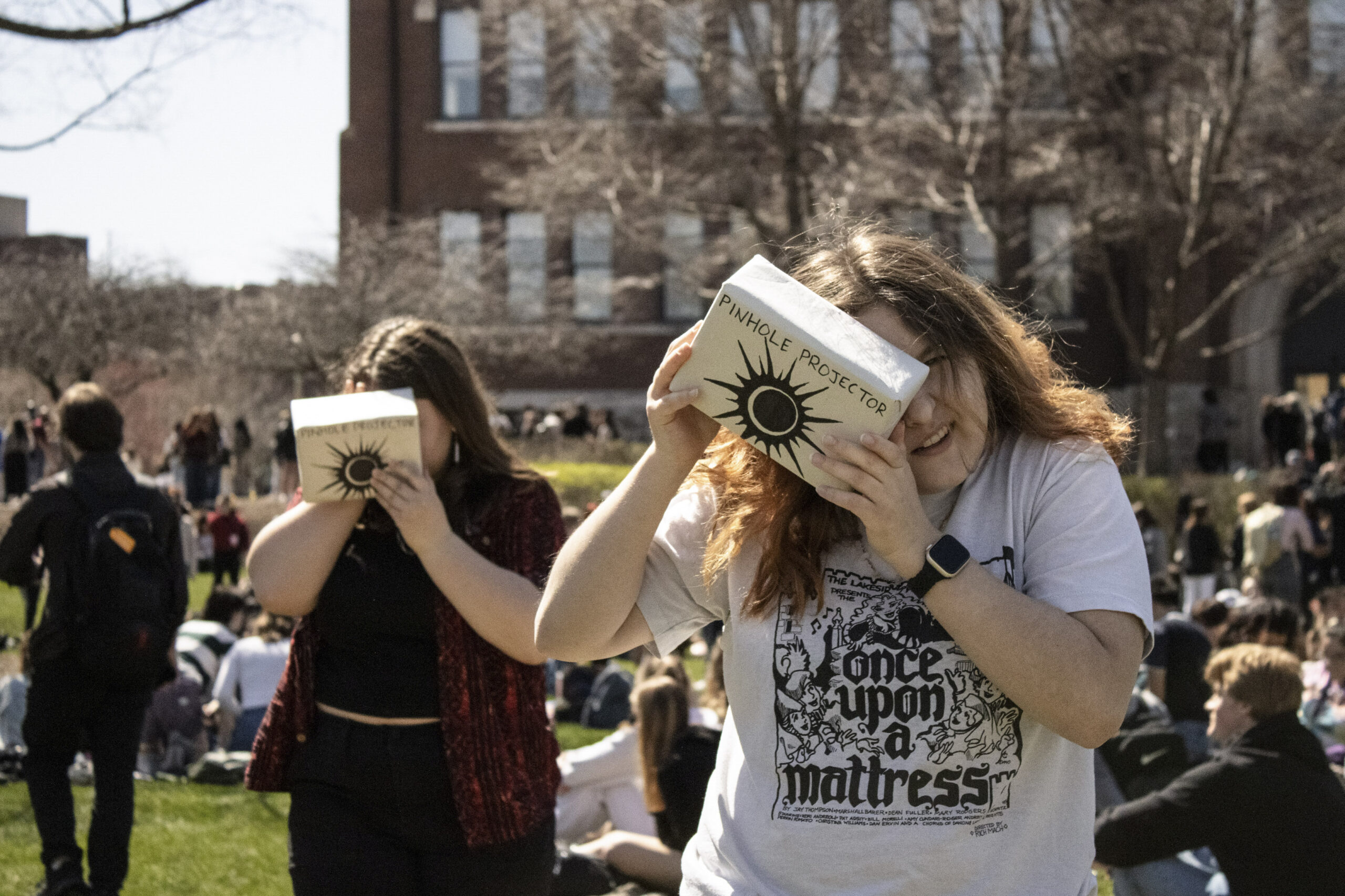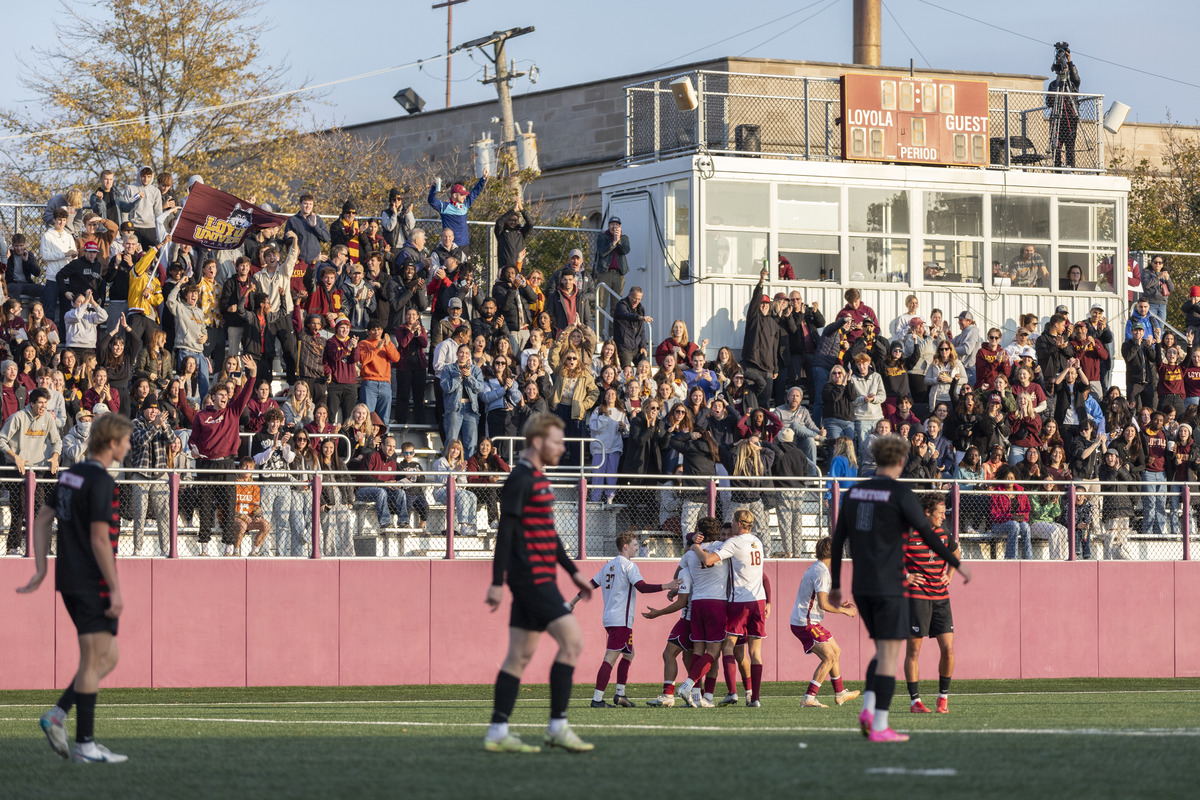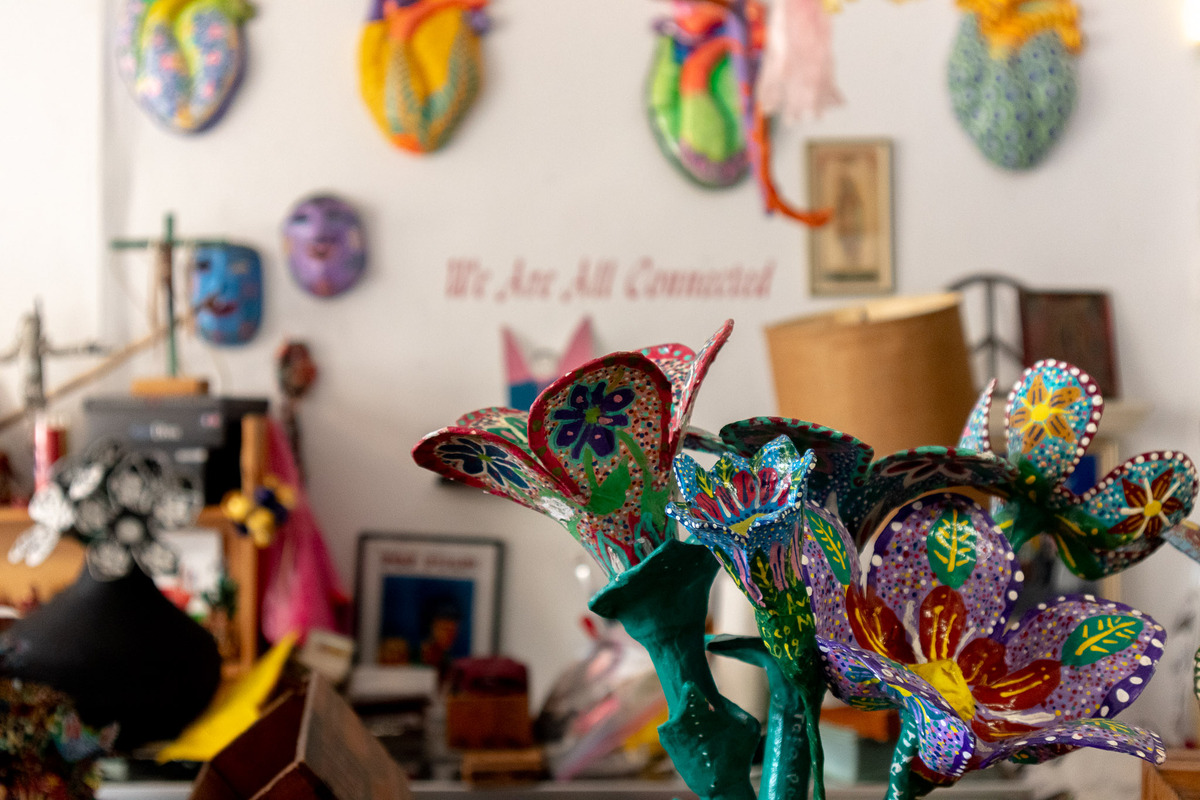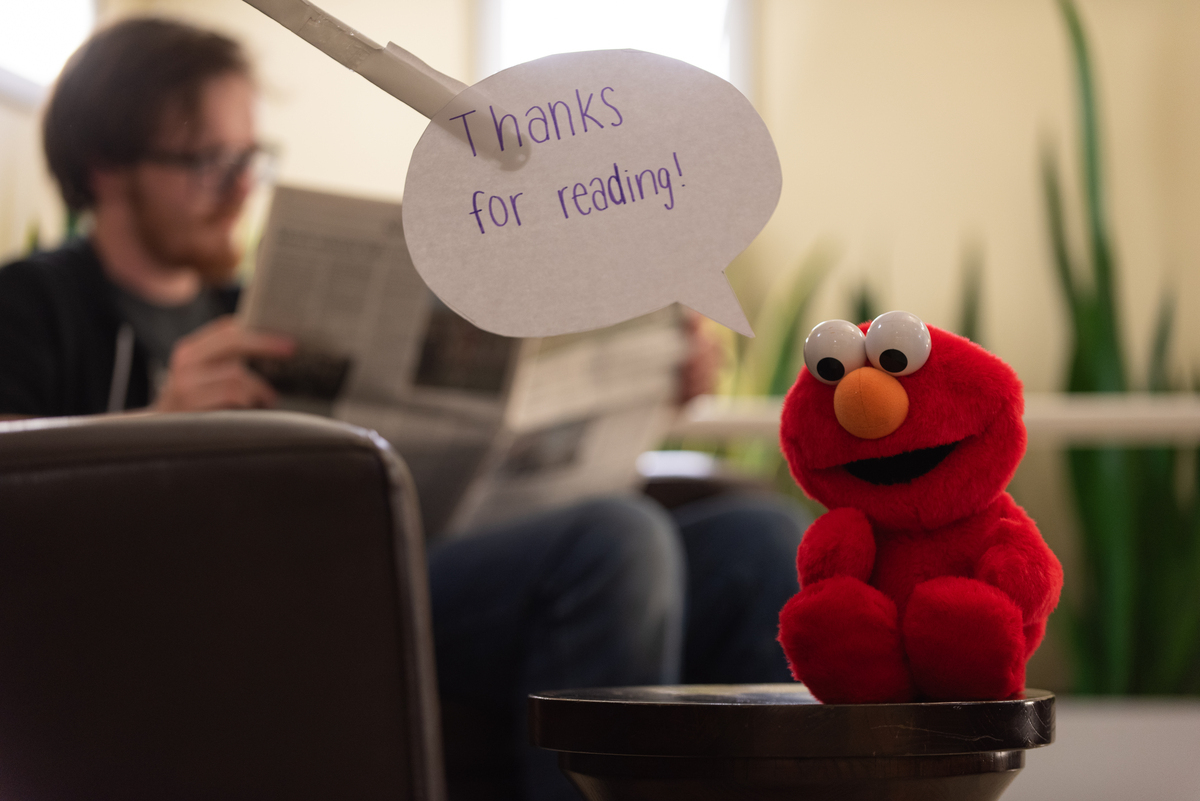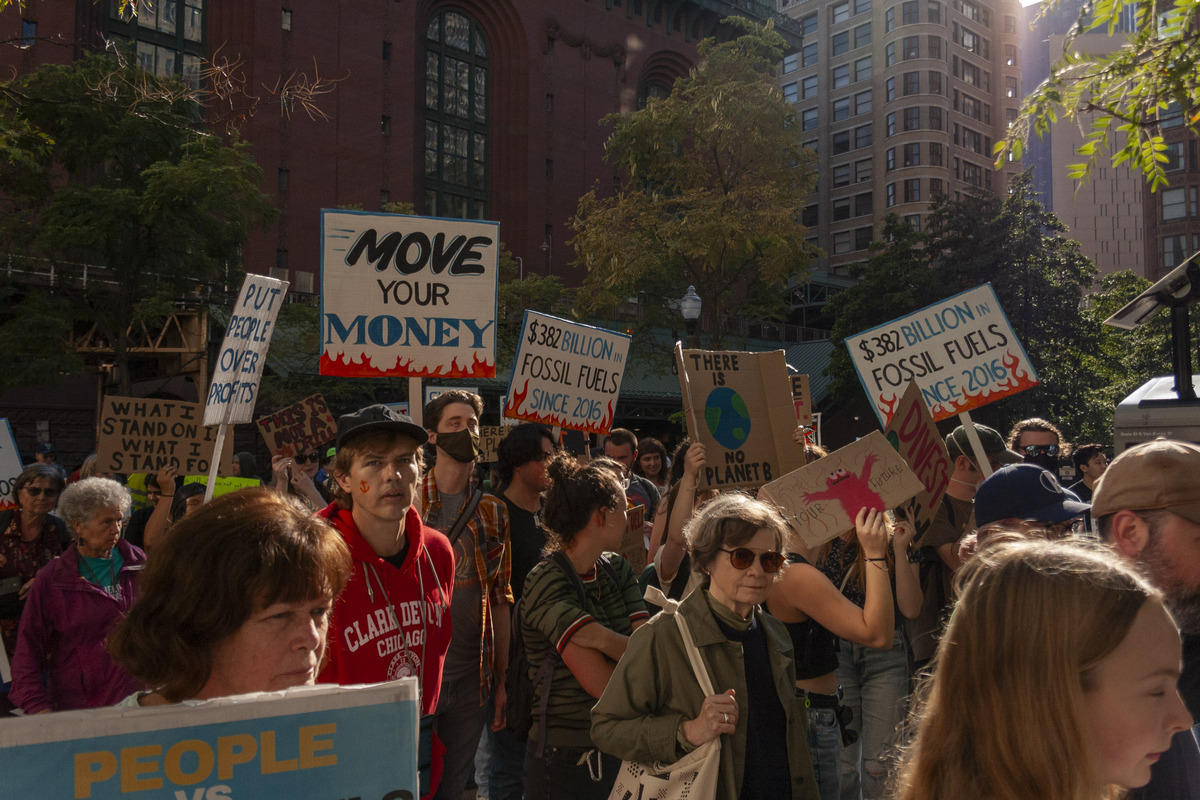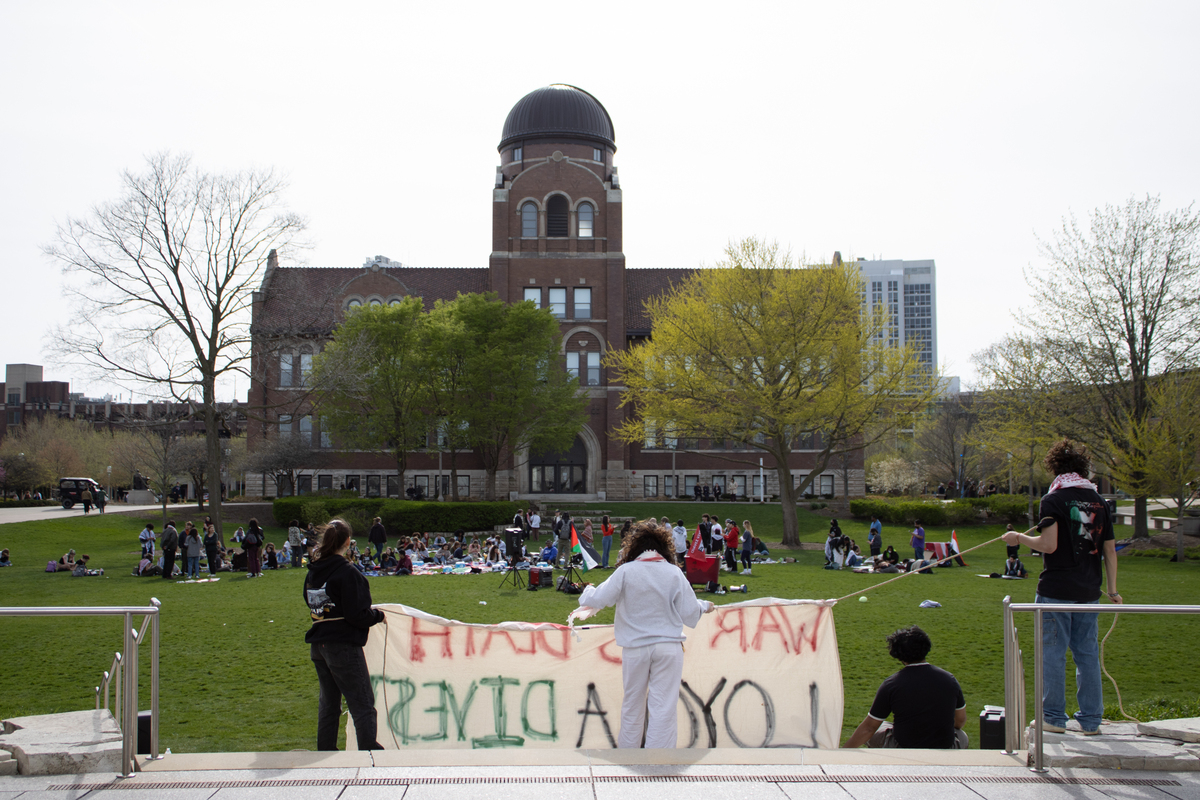The College of Arts and Sciences and the Department of Theology co-hosted a roundtable discussion with former President of Ireland Mary McAleese Feb. 16.
The College of Arts and Sciences and the Department of Theology co-hosted a roundtable discussion with former President of Ireland Mary McAleese Feb. 16. The discussion, organized and moderated by Dr. Miguel Díaz and Dr. Hille Haker in the Theology department, revolved around the former president’s peacebuilding achievements.
During the event, McAleese discussed her experiences growing up in Northern Ireland amidst sectarian warfare caused by religious differences and socioeconomic disparity. She described how her childhood experiences informed her passion for bridge-building, advising those in attendance to reach out to others with empathy regardless of social and political differences.
“In the middle of binariness and sectarianism, there are resolves and opportunities for the individual somehow to break through with love,” said McAleese, 72. “And that’s what you can’t ever give up on.”
McAleese, who held office from 1997 to 2011, is known for her role in the 1998 Good Friday Agreement, according to her biography on Loyola’s website. The agreement ended a 30-year period of warfare in Northern Ireland, according to the BBC.
Before becoming president, McAleese worked as a barrister, author and broadcast journalist, according to the biography. After finishing her two terms as president, McAleese earned a doctorate in canon law at the Pontifical Gregorian University in Rome.
The event was hosted in Mundelein Center’s Jo Ann Rooney Hall, which held approximately 350 attendants, including Loyola President Dr. Mark C. Reed and Dean of the College of Arts and Sciences Dr. Peter Schraeder. Kevin Byrne, the consul general of Ireland in Chicago and former Illinois governor Patrick Quinn also attended.
After opening remarks were given, the event was divided into three segments — questions for McAleese asked by Haker, questions from Díaz and then written questions from the audience.
Schraeder began the event by thanking everyone for attending the discussion and McAleese for traveling to Chicago. Reed then gave an opening statement, once again thanking McAleese and describing how her political work reflects Loyola’s values.
“President McAleese’s tenure was marked by a steadfast commitment to peace, advocacy for social equity and tireless efforts to bridge divides,” Reed said. “Her presidency stands as a testament to inclusive dialogue and reconciliation. And these, of course, are values that we share as a Jesuit Catholic university.”
Reed’s statement was followed by an introduction from Díaz, who recalled meeting McAleese while serving as the U.S. Ambassador to the Holy City under the Obama Administration. He said she was one of the first people he came out to as a queer, Catholic man.
“Throughout the years, Mary has never stopped supporting or affirming my work as an educator and as a theologian, and remains to this day an inspiration for me with her vision to realize a more catholic — that is, a more inclusive and just — church,” Díaz said.
Co-moderator Haker followed Díaz’s speech and discussed her history with McAleese and said she helped coordinate the roundtable discussion to foster change in Loyola’s community.
“Have we unlearned to dream?” Haker said. “Have we become too timid when imagining what our campus can be? What the church can be? Maybe we need someone to talk to us and touch our hearts so that we can come to our senses.”
The first segment took up the majority of the event as McAleese told stories from her childhood growing up in Belfast, Northern Ireland. She recalled seeing acts of violence and experiencing death up close as a result of being a Catholic in an area that was largely Protestant.
McAleese spoke of the trauma and PTSD her and her family have struggled with as a result of The Troubles, a nearly 30-year stint of sectarian warfare in Northern Ireland derived from socio-economic and political differences between the country’s Catholic and Protestant populations. She said she remembers coming home from a church service to a house riddled with bullet holes, as well as her father’s emotional absence and depression after nearly being killed by a car bomb.
McAleese also said there was room for empathy amidst the daily violence. She said she was good friends with some of the Protestant children in her neighborhood, helping her to understand the humanity on both sides of the conflict.
“How do we break out of this vicious cycle and work towards becoming good neighbors to each other so that we can walk our streets fearlessly?” McAleese said.
McAleese said her proximity to both sides of the sectarian conflict helped inform her “humanistic” approach to politics and propelled her to work towards the Good Friday Agreement. She said she felt the violence was a zero sum game, as it facilitated loss on both sides.
“I think people trusted that this was a moment when the president who had had that experience that I had and who wanted to build bridges could do something that looked impossible but actually just plain needed to be done,” McAleese said.
McAleese also touched on the significance of the recent Feb. 3 election in Northern Ireland. The newly-appointed first minister Michelle O’Neill is the first member of the nationalist and Catholic Sinn Fein party to ever be elected to the position, according to The New York Times.
The deputy first minister, who will work in tandem with O’Neill, is Emma Little-Pengelly — a member of the Democratic Unionists Party. This party has Protestant ties and supports Northern Ireland’s status as part of the U.K. — oppositional view from the Sinn Fein, according to The New York Times.
McAleese said these two women are working together to create a future for Northern Ireland despite their close familial ties to The Troubles. She described seeing them together at a funeral a few weeks ago, talking and laughing despite their differing beliefs.
“Everytime the camera turned to them, I thought, ‘We are on a new trajectory here,’” McAleese said. “Honestly, I do think these two women are bringing something profoundly different to the sheer humanity of working together. And that gives me great hope.”
The second segment of the discussion involved questions asked by Díaz about the importance of humanitarianism in peacebuilding and how Catholic institutions such as Loyola can work towards McAleese’s ideals of building bridges.
McAleese said being mindful of language and actively remembering to promote ideals of love are important aspects of peacebuilding, especially for Catholics and Christians of all denominations.
“It’s not just for Christian universities or Catholic universities — it’s for anybody who calls him or herself a Christian to listen very carefully to the language they use,” McAleese said. “Does it carry sexism? Does it convey racism? Does it convey homophobia? Or does it convey love?”
The final segment of the event for McAleese to answer individual questions from the audience was cut short due to time restraints. However, since many of the questions asked for her opinion on the ongoing violence in Gaza, she emphasized her belief in supporting people who are “working towards peacebuilding on all sides.”
After the discussion, McAleese told The Phoenix she has enjoyed her time at Loyola, complimenting its sense of community. She said she loved being asked about what the university specifically can do to work towards peacebuilding efforts.
Fourth-year Haleigh Bachmann said she went to the event because she took a class on Irish history in high school. She said it was interesting to hear a first-hand account of such a complex issue.
“I really enjoyed when she was talking about choosing to overcome the hardship of living through those troubles and advocate for peace,” Bachman said. “For her to be able to recognize there’s an end in sight and to have that hope — I thought that was so awesome.”
First-year Jack Patterson said the discussion’s Catholic overtones helped him connect to what McAleese was saying.
“I think the emphasis on Catholicism’s incredibly interesting,” Patterson said. “Obviously the conflict was very religious, but generally throughout the entire talk there was a huge emphasis on miracles. And I’m a Catholic, so I feel like that was particularly engaging.”
Schraeder said the discussion was “amazing,”commending the former president for her passion for peace and willingness to do the work towards building bridges.
“The amazing thing for me is just how personable she is,” Schraeder said. “And how she speaks from the heart and how she was able to accomplish the things that she did because she has an open heart and is willing to engage people.”
Haker also said she felt the discussion was successful, re-emphasizing the significance of McAleese’s work on the Loyola community.
“It is nice to hear the phrase ‘bridge building,’” Haker said. “But the work behind it is — and I was dead serious about it — step by step by step. It is built of bricks and each brick tells a different story, and I think that is our university.”
Featured image by Allison Treanor / The Phoenix

